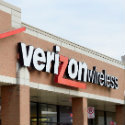Verizon indefinitely delays 3G network shutdown
First Verizon planned to shutter its 3G network at the end of 2019. Then it delayed that plan to the end of 2020. Now, Verizon says 'we don't have a plan to shut it down at this time.'

Verizon has backtracked on its plan to turn off its 3G network by the end of 2020.
In response to questions from Light Reading, Verizon spokesperson Kevin King said "our 3G network is operational and we don't have a plan to shut it down at this time. We'll work with customers to move them to newer technology."
That's a decided change from Verizon's plans from roughly a year ago. In July 2019, Verizon spokesperson Howie Waterman confirmed to Light Reading that the operator had delayed the shuttering of its 3G network from the end of 2019 to the end of 2020. He said the action would give impacted customers "an extra year to decide what they want to do."
Verizon's decision to keep its 3G network up and running means the service provider will continue to operate three separate wireless network technologies – 3G, 4G and 5G – for the foreseeable future.
Verizon's latest position on 3G adds a new twist to a story that stretches across almost an entire decade. Verizon in 2012 – shortly after it launched 4G – that it would eventually discontinue 3G service. In 2016 the carrier put a firm date on that shutdown plan: Dec. 31, 2019. The carrier in July 2018 confirmed it stopped activating 3G phones. Verizon reiterated its 3G shutdown plans to Light Reading at the beginning of 2019 before announcing its delay. Now Verizon is apparently free to shutter the network whenever it wants to.
And that may happen sooner than later. After this article was published, King clarified to Light Reading that Verizon is working to shutter its 3G network as soon as possible, though he did not provide a timeline for the effort. He disputed the notion that Verizon would continue to operate its 3G network well into the future.
Regardless, Verizon's new 3G position likely reflects the operator's desire to retain its 3G customers. While Verizon has not disclosed the number of customers it counts on its 3G network, the figure could be significant. For example, AT&T discontinued service on its 2G network in 2017. According to AT&T's filings with the SEC around that time, it counted 4 million customers on its 2G network, though the majority were IoT devices.
Verizon's flip-flop on 3G comes as AT&T plans to shutter its own 3G network in "early" 2022 in order to "help free up spectrum to better accommodate next generation technologies and services." T-Mobile has said it will shut down its 3G network "over the next several years" but "we haven't shared timing."
Roughly a year ago, network-monitoring company Opensignal reported that 83.2% of 3G-only users in the US lack a 4G rate plan, 12.7% of 3G-only users spent time exclusively in areas where 4G does not reach, and just 4.1% of 3G-only users lack a 4G-capable smartphone.
However, 3G network shutdowns represent a significant issue not only for smartphone users but also for companies that use the network for their IoT services. For example, auto giant Toyota has begun warning some customers that its "Safety Connect" services in North America, including collision notification and roadside assistance, will no longer work after Nov. 1, 2022, due to 3G network shutdowns. "This was a decision made by third-party wireless service providers," Toyota writes on its website, without naming the providers. "Although these circumstances were created by factors beyond our control, we sincerely regret any inconvenience this may cause."
Related posts:
— Mike Dano, Editorial Director, 5G & Mobile Strategies, Light Reading | @mikeddano
About the Author(s)
You May Also Like




_International_Software_Products.jpeg?width=300&auto=webp&quality=80&disable=upscale)







